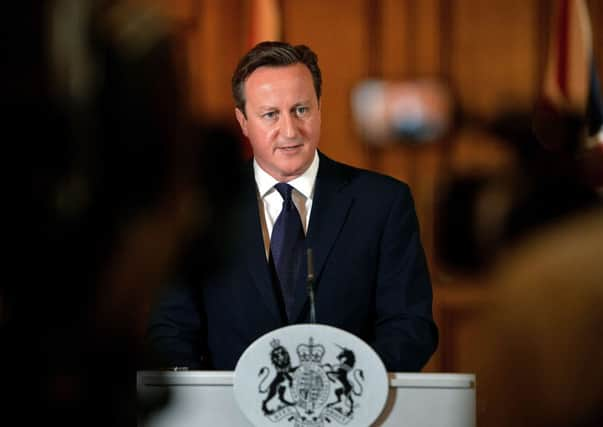Nations to combat IS ‘by all means necessary’


In a show of unity to counter the militant group’s hold over swaths of Iraq and Syria, 30 nations agreed to a “global” response which will include “appropriate military assistance”.
The emergency gathering came as France began reconnaissance flights over Iraq after announcing it was ready to join American air strikes, with the prospect of Britain joining military action moving closer.
Advertisement
Hide AdAdvertisement
Hide AdAmid growing concern over the fate of British aid worker Alan Henning – who is being held hostage by IS after he was kidnapped from an aid convoy in Syria – Foreign Secretary Philip Hammond said British forces were unable to mount a rescue attempt because they did not know where the hostages were being detained. Yesterday Mr Henning’s sister Gill Kenyon, from Lancashire, posted a picture on social media of the pair together as children to mark his 47th birthday in August and said: “Can’t wait to have a party on your return, love you bro xx.”
With the process of diplomatic engagement likely to continue at the United Nations General Assembly in New York next week, a spokesman for Prime Minister David Cameron stressed the overall strategy was designed to “put in place support for those on the ground” in Iraq rather than “intervening over their heads”.
The Parisian summit was opened by Francois Hollande, the French president, who said the threat posed by IS required an international response.
He said: “The threat is global and the response must be global. There is no time to lose.”
Iraq’s president Fouad Massoum called for a co-ordinated military and humanitarian approach, as well as regular strikes against territory in the hands of the extremists and the elimination of their funding.
“We are asking for airborne operations to be continued regularly against terrorist sites,” said Mr Massoum. “We must not allow them to set up sanctuaries. We must pursue them wherever they are. We must cut off their financing. We must bring them to justice and we must stop the fighters in neighboring countries from joining them.”
A US official, speaking on condition of anonymity, said several Arab countries had offered to conduct air strikes.
Gulf states, particularly Saudi Arabia and the United Arab Emirates, have some of the region’s best-equipped militaries, and they could theoretically provide air support to a broader international coalition. US officials say the Emirates and Egypt were behind air strikes against Islamic-backed militants in Libya last month.
Neither Iran nor Syria, which together share most of Iraq’s borders, were invited to the conference. Iran has ruled out working with any international coalition.